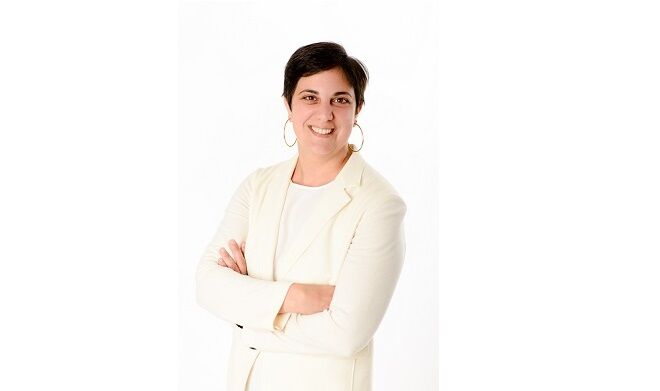This is the seventh installment of our Alumni Spotlight series, which features interviews with former IRAP students who have become strong advocates and leaders in their fields of practice.
Meet Sirine Shebaya, former member of IRAP at Yale Law School and current Senior Staff Attorney at Muslim Advocates and founding member of the Dulles Justice Coalition.
The views expressed here are entirely her own.
How did you become involved with IRAP and how did IRAP impact your law school experience?
I got involved with IRAP during my first year of law school. At the time, it was the only student project at Yale Law School that involved a specific focus on the Middle East, and it also dovetailed with my general interest in the rights of immigrants, migrants, and refugees. I worked with the core IRAP team to set up and organize their first fact-finding trip to Lebanon, where many Iraqi refugees were stranded but where IRAP’s team had not yet been working at the time. Since I’m from Lebanon and have many contacts there, I saw it as an opportunity to make a distinctive contribution and ended up doing everything for that trip: from finding the connections, to setting up the meetings, to making sure we had interpreters when needed, to attending the meetings to learn more about the landscape. It was incredibly educational and moving, and from there I went on to work on three cases and eventually to direct IRAP’s Direct Services Program in my last year of law school. The experience provided me with a more direct window into the extreme hardship refugees go through in order to be able to come to the United States, the many layers of bureaucracy they have to navigate, and how easily they can slip through the cracks in the process. It renewed my commitment to fighting for institutional changes that make our immigration and refugee systems more rational and humane.
IRAP has a unique model of partnering law students with pro bono lawyers — please describe your experience working with attorneys on urgent refugee resettlement cases.
Working with IRAP’s model prepared me well for the close collaboration and coordination with pro bono lawyers that’s necessary in the non-profit world, where we are often strapped for resources and rely heavily on the generosity of large law firms who provide teams of attorneys to assist with difficult cases.
What have you been doing since you graduated from Yale Law School?
Since graduating, my work has generally focused on the civil rights of immigrants. I’ve worked at the ACLU of Maryland on immigrants’ rights litigation and advocacy, at the Capital Area Immigrants’ Rights Coalition on criminal immigration and removal defense, and now at Muslim Advocates, where my work focuses on the Muslim Ban, immigrants’ rights, border issues, surveillance, and a number of other civil rights matters affecting Muslim, Arab, and South Asian communities. I’m also a founding member of the Dulles Justice Coalition, a group of lawyers, organizers, translators, and community members that formed organically in the aftermath of the Muslim Ban that went into effect on January 27, 2017. On January 28, I went to Dulles Airport to assist travelers impacted by the Ban and their family members, and continued over the next several months to assist travelers, coordinate requests for legal assistance, and help organize efforts to make the airport response more systematic and lasting. I am also a board member of the National Immigration Project of the National Lawyers’ Guild.
In what ways has your involvement with IRAP in law school impacted your career?
My involvement with IRAP helped me realize that even obstacles that appear insurmountable may not be. It showed me that daring to believe you can make something better and being willing to work hard to make it happen can be all that’s required to create positive change in the lives of the people who need it. And it drove home for me just how many hundreds of thousands of people need our assistance – and how many more people in need there are than resources. Along with other law school clinics and projects I became involved with, it helped solidify my conviction that I wanted to be a civil rights attorney and to fight with and for those who do not have a voice in this system to be able to fight for themselves.
At a time when refugees are more politicized than ever, how do you engage with the issue on a personal level?
For me, this fight has always been personal. I grew up in a civil war and am all too familiar with the displacement and suffering that comes with violent conflict. As an immigrant to the United States, I also know how hard it can be to fully fit in, find a home in a new place, and learn how to navigate complicated systems that can sometimes feel like they are rigged against newcomers. But I also know that at its best, the United States is a country that welcomes immigrants and refugees with open arms, and that is made stronger and more beautiful and more vibrant by the multi-cultural, multi-talented people who choose to make their home here. My contribution to making this country my own and my children’s is to do what I can to make sure it lives up to the best of its values and principles.




Comments are closed.